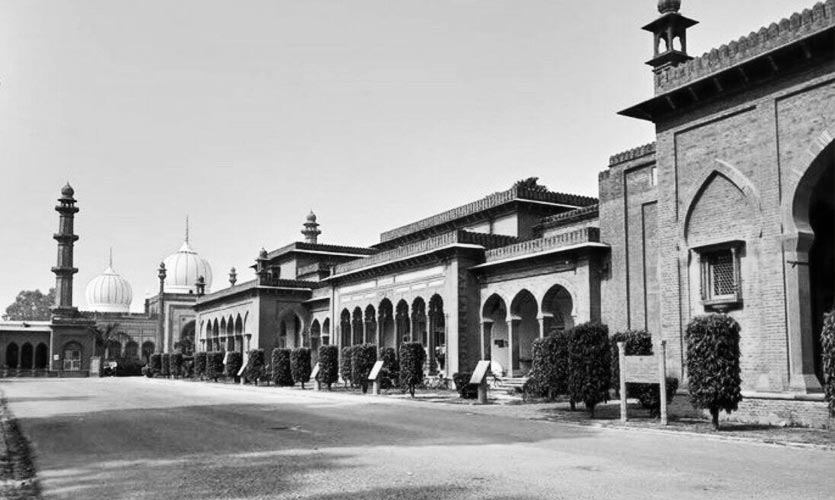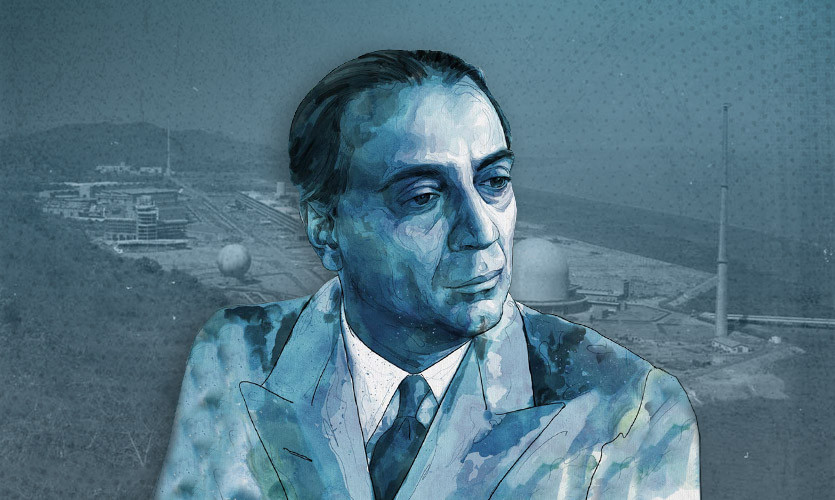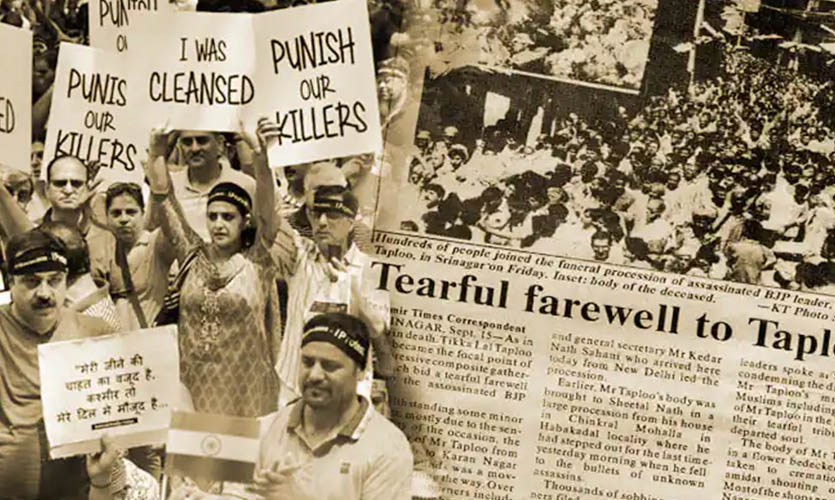Literature and education materials have been in extensive use to propagate all kinds of ideas and agendas, since time immemorial. But what has changed about it in India, in recent times?
Historically, educational institutes in India have been named as they have, not to create divides based on religion, but to differentiate in what was taught in the respective institutions. However, one only needs to be studying at the esteemed Jawaharlal Nehru University (JNU) or Aligarh Muslim University (AMU) to be branded a communist or “sentimentalist”, in that order. But this was not always the case.
A Historical Instrument Of Revolt
Education via literature has been one of the foundational stones of the dissemination of every revolt worth documenting. Nazi Party leader Adolf Hitler’s Mein Kampf (translation: My Struggle) was “part autobiography and part political treatise”. Its publication and distribution were legalised in Germany again only in 2016, and strictly for academic purposes only. They took their time to do so as although a “miserable book”, the influence certain speech could have on an impressionable audience was not disregarded. Taking a better example, German philosopher Karl Marx’s descriptive and reasoned definition of the “petty-bourgeois”, among several other things, made his works attractive despite them presenting a flawed alternative to growing capitalism. Books, manuscripts and scriptures form a vast majority of sources of Vedic knowledge and Indian history, not to mention the works lauded by the various religions, cultures and sects that India is home to. In the political arena as well, written party manifestos are the stepping stones leading to the subsequent election. Similarly, the involvement of public institutes and the impact of student politics on countrywide politics cannot be negated.
Educational institutions in India have a history of being at the forefront of revolutions. The Banaras Hindu University was established to create a safe space for mutual respect and accommodation, and the propagation and preservation of Hindu values during the advent of the British Raj in India. Established in 1916 as the Central Hindu College by Madan Mohan Malviya, Annie Besant and the then rulers of the princely states of Darbhanga and Benares, besides the preservation of culture, the institute’s purpose was to use technology and science to eradicate poverty in the country. The AMU, established by Sir Syed Ahmad Khan in 1875 was India’s first centre for Islamic and Western higher education, initially called the Muhammadan Anglo-Oriental College, representing the area of expertise. The establishment of these institutes was one of the ways devised by Indian leaders to stay rooted to the spiritual values and cultural roots during the British invasion. The accosters limited the Indian people by rummaging through and destroying our Gurukul system and introducing their system of education. Nevertheless, no student part of the modern Indian education system could forget how the students at Eden College in Kolkata burned an effigy of Lord Curzon to protest the partition of Bengal in 1905, and the wrath they had to face for it.
To be fair to our right-wing motabhais, the JNU has always had left-liberal influences. Its students’ support of the 2001 Indian Parliament attack convicted Kashmiri separatist leader Afzal Guru, has by far been the most provocative. Even if all they were protesting was his execution (which was not the case for most). However, it is this liberalism that has allowed for other groups such as the Rashtriya Swayamsevak Sangh’s (RSS’) student wing – the Akhil Bharatiya Vidyarthi Parishad (ABVP) – to flourish. Although the ABVP’s rise has also been attributed to the popularity enjoyed by the former prime minister, Atal Bihari Vajpayee of the BJP, and his administration. But the ABVP of the 1990s was certainly different from that of now. A former ABVP member, quoted by the Print after the JNU violence concerning the anti-CAA protests in Delhi, said, “The Modi government has shown a clear interest in interfering with JNU, and the ABVP is acting with the administration to further its interests.” JNU students Natasha Narwal and Devangana Kalita, and Jamia Millia Islamia student Asif Iqbal Tanha were arrested in May 2020 for their alleged anti-national remarks during the anti-CAA protests, under the Unlawful Activities (Prevention) Act, 2019 (UAPA). They have been accused of being part of a “premeditated conspiracy” to incite the communal violence witnessed in the north-eastern part of Delhi in February 2020.
The Political Crusade Over India’s Institutes
While public institutes in India have been party to shaping political narratives, open efforts to influence classroom lectures and syllabus are a first. The new counter-terrorism course at the JNU sparked a row for allegedly describing “jihadi terrorism” as the only form of “fundamentalist-religious terrorism”. The optional course – ‘Counter Terrorism, Asymmetric Conflicts and Strategies for Cooperation among Major Powers’ – was cleared for engineering students pursuing a Master with specialisation in International Relations. It also allegedly stated China and the former Soviet Union’s communist rule to be the “predominant state-sponsors of terrorism” that influenced “radical Islamic states”. The course material was objected to by a lot of JNU students and faculty as well especially as the JNU Teachers’ Association alleged that they were consulted. One of the most upset individuals was Rajya Sabha MP Binoy Viswam, who narrated his concerns in a detailed letter to Education Minister Dharmendra Pradhan, citing how the materials could “communalise and politicise geopolitical issues”. JNU Vice-Chancellor Mamidala Jagadesh Kumar has however dismissed the “needless controversy” and tried to encourage all to consider the “academic merits”.
Bihar’s Jai Prakash (JP) University also upset any kind of balance the state had by removing the chapters on socialist icon Jayaprakash Narayan and revolutionary Ram Manohar Lohia. Even though Bihar Chief Minister Nitish Kumar is in alliance with the BJP-led NDA, the Janata Dal (United) leader is a believer of Narayan and Lohia’s ideologies. The parties of Bihar were united in voicing their displeasure, with Rashtriya Janata Dal leader and former CM Lalu Prasad Yadav terming these actions of “the Sanghi Bihar government and officials who follow the Sangh’s ideology” as “intolerable”. The changes were made during the term of the former governor, Lalji Tandon of the BJP. Following the outrage, the chapters were immediately restored, although an inquiry was set over the vice-chancellor and registrar of the university.
The Central University of Kerala (CUK) in Kasaragod has warned its teachers against delivering “anti-national” comments in classrooms and to stick to the syllabus. Earlier this year, an assistant professor at the university, Gilbert Sebastian was suspended for criticising the Centre’s COVID vaccination policy, and for allegedly saying that “the Sangh Parivar in India can be considered as a proto-fascist organisation”, during online classes. The circular issued by the CUK instructs faculty members and employees to not make statements “against the interest of the nation”.
The Aam Aadmi Party (AAP) has taken the will to influence education one step further by introducing the Deshbhakti Curriculum in the government schools of Delhi. “It will be activity based, and students will be told stories about independence and the nation’s pride. Children will be made to realise their responsibilities and duties towards the country… They will be prepared to fulfil their responsibilities and contribute towards the nation’s progress,” said AAP’s national convener and Delhi CM Arvind Kejriwal on August 15.
Why The Fuss?
The currently young, college-going population of our country will soon form the largest part of our voter base. Impressionable youth is a time where most people choose the political alignment to stick with for the rest of their years. With large numbers, they will also have a greater influence on the electoral process. Anyone with a political agenda will benefit tremendously if they are successful in shaping young minds. However, it is commendable that the young minds of our country don’t fail to raise their voices.
A strong wave of elections is about to hit India, with six states and one union territory election in 2022 alone. More states are expected to go to polls in 2023, followed by the Lok Sabha election in 2024.
It is important for education to be sans religious or political motives. Albeit whatever the political narrative, being politically informed is of higher importance.
The Horus Eye is a weekly column written by Divya Bhan analysing current affairs and policies. This column does not intend or aim to promote any ideology and does not reflect the official position of The Sparrow.
Also read: Is Mass Surveillance In India A Precursor To An “Orwellian” State?
Also read: India Needs A Stronger Opposition, But The Congress Is Not It










